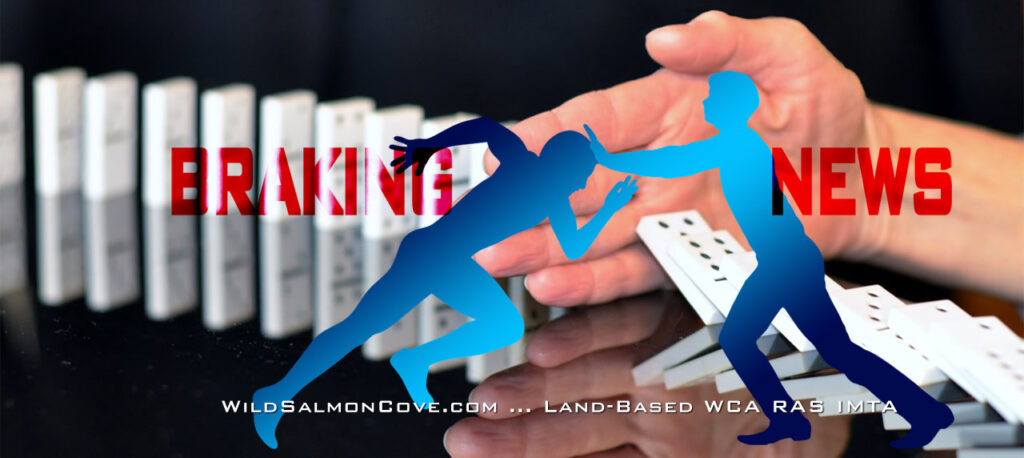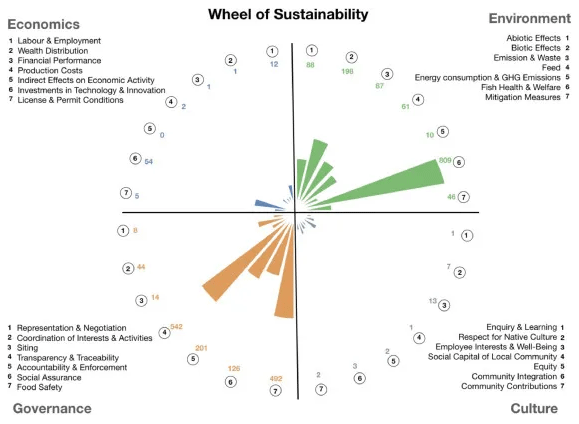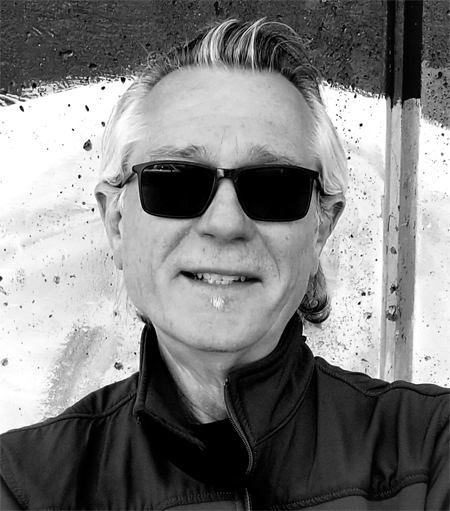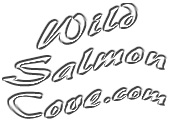Part 2 of a 4 part series … Read Part 1

There are only two types of news media – trusted, and all the rest.
That’s a joke – not really though because it’s not funny when you’re being fooled.
PEW Research has proven for decades that most of us don’t trust news media, yet we base our decisions on information that news media promotes – somewhat of a conundrum.
Media confusion occurs because news audiences are cleverly influenced to believe that FAKE NEWS is real journalism. The challenge is that even when some of the information is true, how it is positioned can be deceptive.
Consequently, we always have to be cognizant of BIAS – a wild card slipped into the deck without anyone noticing. Bias isn’t inherently bad – it’s who we are as individuals … hidden bias however, is another story – literally.
Bias can also be an element of how we learn, and our belief systems. For example, each of us are influenced by our personal bias confirmation, which basically means we embrace information that supports what we currently believe, and we reject data that contradicts it. It’s faulty thinking, and unless you were cognoscente of this ingrained trait, you would have a very difficult time changing your mind about anything to which you are passionate. Beer companies like to establish loyalty even before consumers are of drinking age because they know that once you are hooked on their magic elixir, you’re probably hooked for life. Stanford University research discovered that we receive a jolt of the pleasure-drug, dopamine when we process information that supports our beliefs.
According to a Harvard study also described in The New Yorker, “Presented with someone else’s argument, we’re quite adept at spotting the weaknesses. Almost invariably, the positions we’re blind about are our own.“
Along with bias, we also have to contend with the “illusion of explanatory depth” which basically means; “People think they know more than they actually do.” When your employer tells you you’re doing the right thing the right way, and rewards you for it, it eventually becomes familiar phenomenon and your personal bias confirmation. What you think you know to be right, is whatever your boss tells you is correct. It’s doesn’t however, make it right. This is why it’s important to follow and align yourself with great leaders.
Here’s something your open-net boss is definitely wrong about though; When aqua farms move to land-based there will be just as many and in some cases even more jobs for local communities. Plus, many of the positions will be high quality and pay well.
I owned a boutique media communications agency for over two decades, and would regularly meet with owners and c-suite executives interested in transitioning from a traditional sales process to digital on the internet. Invariably, when the directive to change came from the TOP DOWN, the success rate of the project dramatically increased. One reason was because when the plan came from a leader with a clear agenda and goal, it was easier during my Change Management process to identify executives that demonstrated strong confirmation bias. The goal however wasn’t only to change their minds. It was also to identify anyone with a high possibility of sabotaging the transition, and to move them to other departments or projects, or let them go.
Change is difficult and expensive, so anyone who isn’t cooperative and collaborative is a liability.
Bias is a very challenging complication that impacts projects at many levels. It’s one reason why third party certifications are so important. Third parties make it easier for us to modify our reasoning when we know the impending change isn’t a personal affront to our loyalties.
Certifications are also used to identify companies that play by the rules and meet standards. Regarding fisheries, current certification programs, are unfortunately, ill conceived, chaotic, and today, heavily influenced by environmental players, which is a new twist and complexity. Everyone, including, and especially the consumer is confused. Way too many fisheries’ surveys are quoted without identifying who paid for it and how many people were polled. Asking six people in your organization or industry a biased question isn’t a legitimate survey – it’s misleading and meant to confuse, even if it’s done by a professor at a university.
Anyone can be bought – Norwegian Farmed Salmon producers charged with Price Fixing in Canada.
Confusion, as we’ve seen in the U.S. presidential race, is a great way to bury information.
The 2020 Science Direct CERTIFICATION report is comprehensive. It highlights “sustainability indicators” as well as issues related to “environmental and governance”. The report includes an innovative Wheel of Sustainability, and also pointers to critical insight like; “Working towards sustainability requires a holistic perspective”, and also that certification programs, and there are way too many, focus mostly on the environment, but do not necessarily improve sustainability. The mistaken assumption being that if you improve the ocean environment, sea life will benefit. That however, is not the case because sustainability has its own specific criteria for success.
A growing number of consumers don’t trust commercial fisheries and are vocal about it on social media. Their influence, in part, and in addition to science of course, impacts seafood certification. Consumers vote, which means politicians also have considerable incentive to contribute to the narrative. Today, because environmentalists and consumers are so strongly aligned, they collectively have more influence on certifications and the future of a seafood company than one might imagine. It’s highly likely, going forward post-pandemic, that environmental issues will continue to dominate and take precedence under a flag of “Enough is Enough”.
Traditional fisheries might not like it, but already … LAND-BASED aquaculture is VERY RAPIDLY taking on a life of its own.
The Wheel of Sustainability is designed to shape fisheries certification criteria, and to make order of the chaos. Success of the network ecosystem is dependent on a delicate balance of collaboration, communication, and transparency – plus data, BIG DATA.

Trustworthy companies manage bias transparently.
B Corps operate in this sphere by making it clear up front that their philosophy is a balance of ethics and profit.
To quote from the B Corp website:
“Certified B Corporations are a new kind of business that balances purpose and profit. They are legally required to consider the impact of their decisions on their workers, customers, suppliers, community, and the environment. This is a community of leaders, driving a global movement of people using business as a force for good.”
It’s a great shopping list for the #EthicalMajority
________________________
Here’s a list of seafood companies certified B Corp;
Organic Ocean – Wild Seafood
Sea to Table – Wild Seafood
FishPeople – Wild Seafood
Gold Seal – Wild Seafood
Hog Island – Oyster Farm
I’ve developed wild and aquaculture projects for local and international markets for almost a decade. The biggest issue I’ve encountered is that the progress of most fisheries has stagnated. All fisheries have to invest considerably more in environmental programs in order to make a difference – talk is cheap. The Canadian government wants open-net pens to be enclosed, or transitioned out of the Pacific to LAND-BASED facilities over the next several years. Ocean farmers are angry, and in some cases justified, but the reality is that there was plenty of opportunity to do a better environmental job over the last four decades. Instead, many squandered their time while Norway advanced land-based operations.
We recently saw what happened with pandemic masks, and figured out pretty quickly that humans can’t be trusted to do the right thing even when their lives depend on it. The honour system for fisheries doesn’t work either, which means we need a brand new set of regulations from the DFO and the Minister of Fisheries, Oceans and Coast Guard, Bernadette Jordan.
I could be mistaken, and I apologize if so, but I can’t find even one finfish farm on the B Corp site, so if you know of any please send them my way.
It seems to me that a fishery like open-net pen fish aquaculture, an industry that is so beleaguered by ecological and environmental criticism, would be first in line for simple, trusted, and truly independent third-party certification. Becoming a B Corp would be an immutable way for open-net pen farmers to quell naysayers. I clearly understand the challenges to be business certified, but by now, August 2020, it looks like not even one open-net fish farm is in the house, blue or otherwise. The closest I could find is a Chilean seafood processor that promotes farmed; Integar.
After years of research, in my professional opinion RAS is the most humane and environmentally friendly method for oceans and climate. If it turns out that there isn’t even one aquaculture company listed yet, my thinking is that a CRAFT-style LAND-BASED RAS IMTA company will be the first certified B Corp fish farm.
It’s remotely possible too that the first land-based fish farm to make B Corp certification will be a company like Atlantic Sapphire. At that scale though, and considering they’re still under construction, they have sizable energy and water challenges to sort out. It could be a while before they get their eco-environmental groove on. Unlike open-net salmon farms though, Atlantic Sapphire is aggressively reinventing fisheries and moving in the right direction regarding sustainability.
All good things take time … and money!
In Part 3 I’ll cover the value of transparency to a company and its customers
Part 1… 2… 3… 4…

Maurice Cardinal has been a fisheries marketing and communications advisor and writer in British Columbia for almost a decade and has worked with leading organisations, NGOs, and governments in Canada and abroad.
